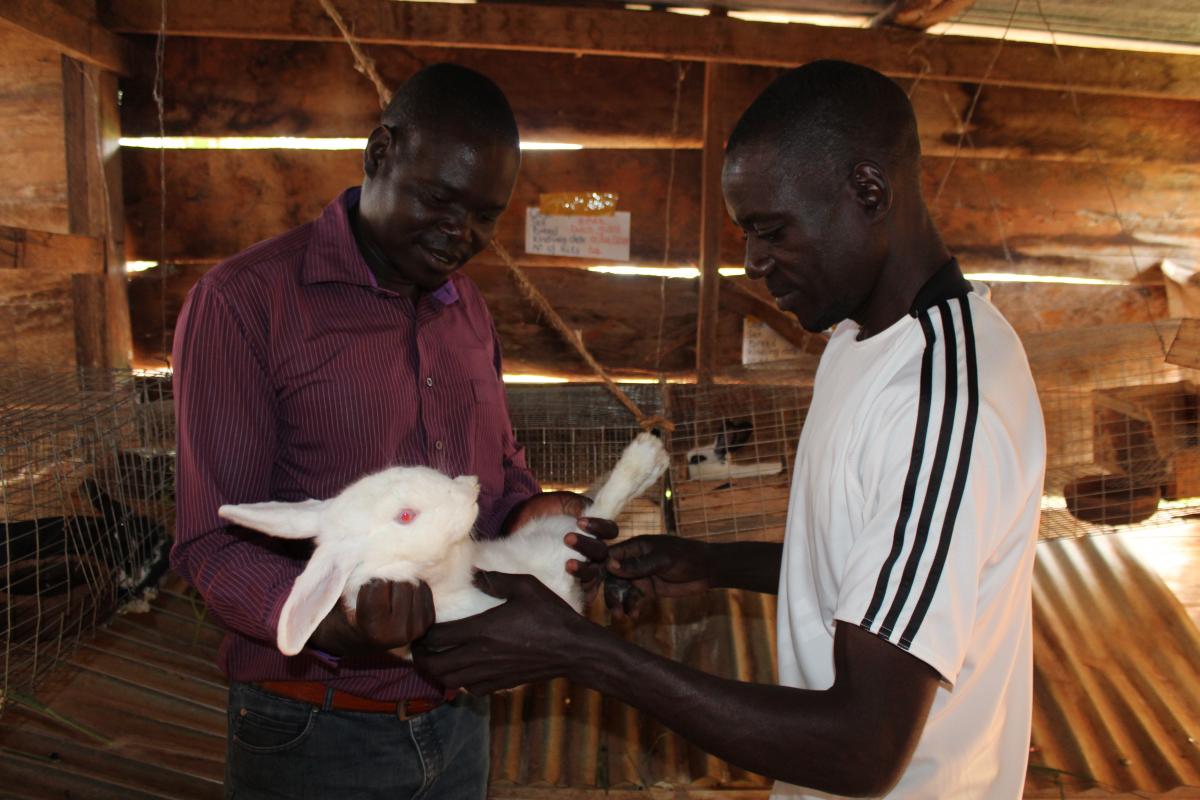Abilonino takes on Rabbit farming with a purpose
Abilonino Instructors College had spent a substantial amount of money on procuring rabbits for training their agriculture students. Along the way, as the Support to the Development of Human Resources (SDHR) project conducted training needs assessments for the beneficiary organizations, they chanced on this opportunity and prioritized a rabbit production attachment for key stakeholders in the agriculture department.
"A needs assessment was done here at the college. Rabbit and fish farming were identified and a training was put in plan,’’ says Robert Kisoma, training officer on the SDHR project. “This was foreseen to link Abilonino to the community,” he adds
An attachment was then organised for 12 days to Cabral rabbit farm, Namayumba, Kampala and two key staff; the farm manager and the Agriculture lecturer were sent to acquire knowledge on rabbit farming after which an action plan was drawn. This plan included action points such as, setting up a rabbit farm unit, purchasing initial breeding stock, setting a demonstration farm, management of litter and others.
“During the training, we learnt about different rabbit breeds and how to select them, rabbit structure formation and feeding, disease control and treatment, and many other things about rabbit farming,” Terence Omony, the Agriculture lecturer and training participant explains.
Thereafter a proposal was drawn and presented to the college administration and it was seconded. This January 2018, the team proceeded to set up a housing unit where Enabel gave support in acquiring cages. They then procured 12 rabbits; 10 females and 2 males and currently have 30 plus rabbits.
“This rabbit farm has been very essential in training students in modern rabbit farming practices,” Terence asserts. They hope to grow the farm to act as a demonstration farm for the students and neighboring communities as there as hardly any farmers rearing rabbits in the vicinity.
“Rabbits are easy to keep, grow very fast and multiply easily. We hope to have over 500 rabbits in the near future,” adds Kenneth Ogwal, the farm manager. “It’s a good start. I commend the staff for implementing the knowledge they acquired,” Robert mentions.
The farm boasts of 3 high quality breeds; the Giant Dutch, New Zealand White and Checkered. These were identified during the training as among the best breeds.
Although a few challenges may be met, such as insufficient nesting boxes and housing unit the farm management is determined to face the challenges head on and find workable solutions to ensure the growth of the rabbit project.
Latest news from this project
No news

